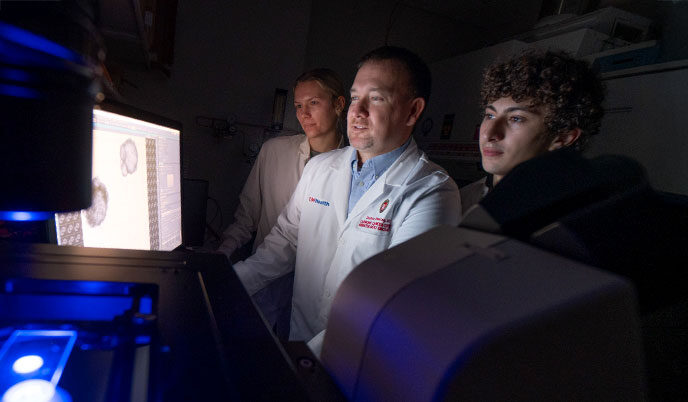
UW–Madison and Immuto Scientific to collaborate on novel cancer target discovery
University of Wisconsin–Madison and Immuto Scientific have officially entered into a collaborative agreement to identify disease-specific, novel therapeutic targets in colorectal cancer.
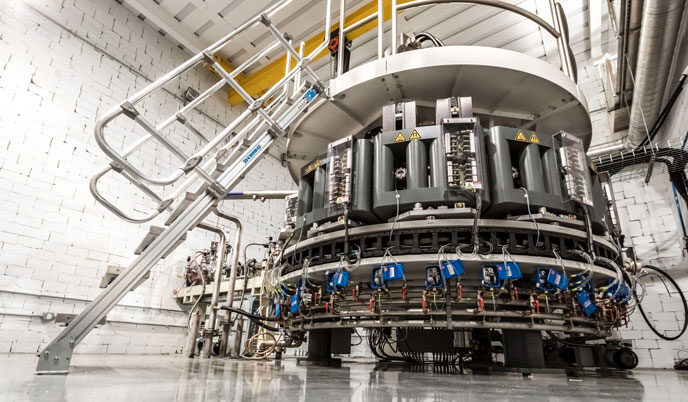
Radiopharmaceutical research agreement signed with NorthStar Medical Radioisotopes
A new agreement between the University of Wisconsin School of Medicine and Public Health and NorthStar Medical Radioisotopes, LLC (NorthStar) is aimed at advancing research and supporting workforce development in the nuclear medicine sector.

Q&A: Joshua Lang on new research on treatment-resistant prostate cancer
A five-year, $12.5 million grant has been awarded to researchers at UW–Madison to investigate metastatic, or advanced stage, prostate cancer, the second most common cause of cancer death in men.

An early roadmap to preventing a devastating childhood brain cancer
Stopping genetic mutations that cause a rare but aggressive brain tumor in children may be the key to preventing the cancer’s development in the first place, according to researchers in the UW School of Medicine and Public Health.
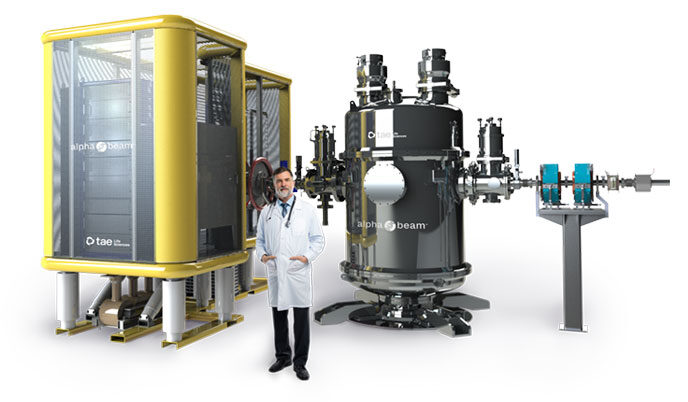
UW–Madison to lead nation in boron neutron capture therapy for cancer
The University of Wisconsin–Madison and TAE Life Sciences, a biotechnology company specializing in targeted radiation therapy for cancer care, have signed a memorandum of understanding, or MOU, announcing the intention to launch the first accelerator-based boron neutron capture therapy (BNCT) center in the United States.

Researching voice disorders is top strength of new department
UW is known nationwide for its expertise in laryngology, the care of patients with voice, airway and swallowing disorders. The specialty is a key strength of the new Department of Otolaryngology-Head and Neck Surgery, which became the school’s 28th department in June after nine decades of growth and innovation as a division within the Department of Surgery.
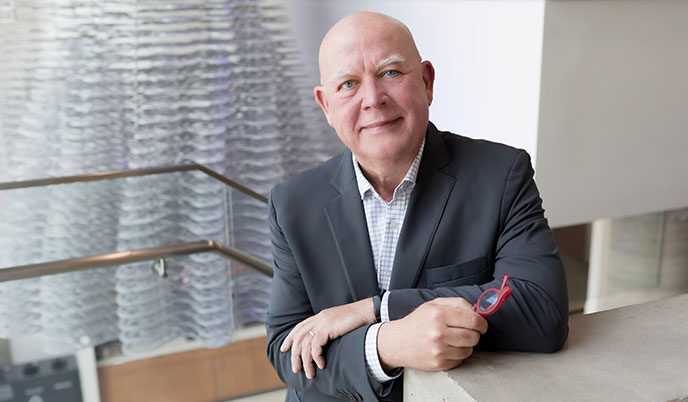
Q&A: Jacques Galipeau on cell therapies to cure disease
Dr. Jacques Galipeau is the associate dean for therapeutics development and the director of the Program for Advanced Cell Therapy (PACT), a collaboration between UW Health and the University of Wisconsin School of Medicine and Public Health that aims to bring innovative cell therapies to patients. He is also a practicing hematologist, treating patients with blood clot disorders, anemia, and other diseases and conditions.
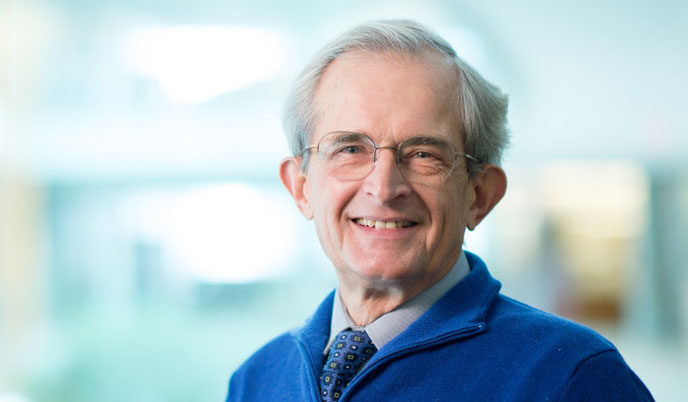
James Dahlberg receives American Innovator Award
James Dahlberg, a professor emeritus of biomolecular chemistry whose research led to a widely accessible colon cancer screening test, received the American Innovator Award from the Bayh-Dole coalition in June.
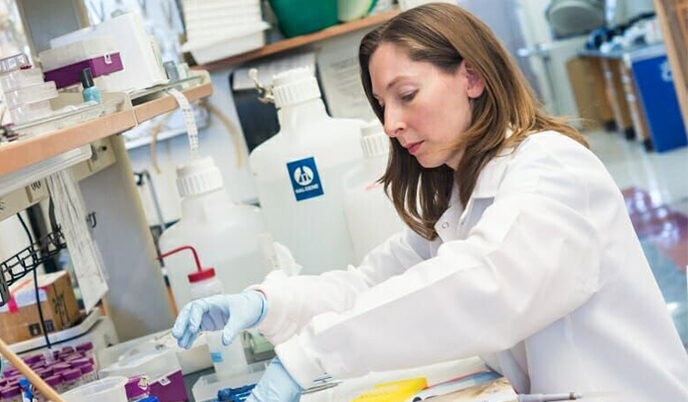
World Breast Cancer Research Day
World Breast Cancer Research Day is celebrated on the 18th day of the eighth month of the year — a reference to the one in eight women and one in 833 men who will be diagnosed with breast cancer in their lifetimes. The day is intended to amplify the urgency of preventing disease and finding cures, as well as shine a light on critical research, including studies supported by federal funding.

Gene analysis helps optimize prostate cancer radiation dose
New results from two randomized clinical trials showed that analyzing a gene expression signature in tumors may help doctors customize radiation treatments for prostate cancer patients, improving outcomes while avoiding unnecessary side effects.
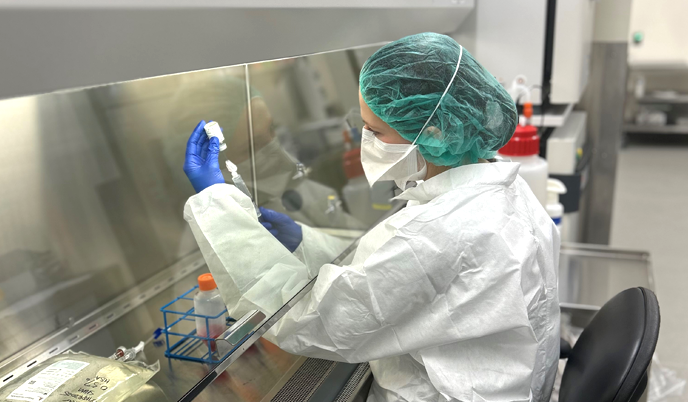
Program for Advanced Cell Therapy expands facility and cell preservation capabilities
A program at the University of Wisconsin School of Medicine and Public Health and UW Health is continuing to grow as it develops novel cell-based therapies for a variety of difficult-to-treat conditions.
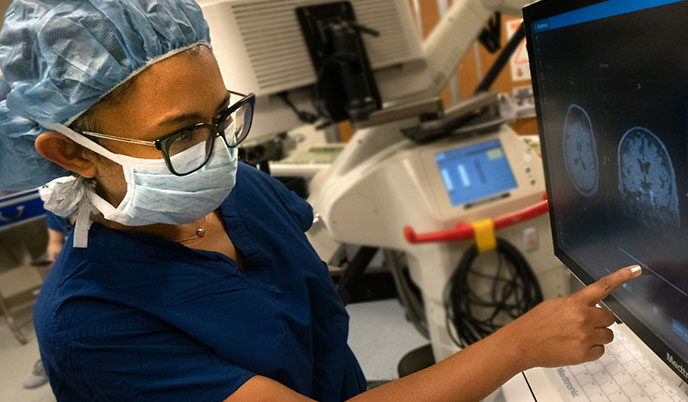
Q&A: Mahua Dey explores glioblastoma vaccine
Dr. Mahua Dey is an associate professor in the Department of Neurological Surgery and the director of the surgical neuro-oncology program in the University of Wisconsin School of Medicine and Public Health. She specializes in the surgical management of both benign and malignant brain tumors.